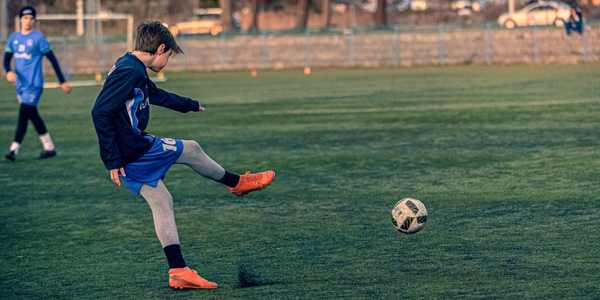
How Goalies Regain Their Focus
After giving up a goal, does your performance improve or deteriorate?
Are you able to move forward after letting in a goal and quickly get your head back in the game?
Can you recall a game when you let in a goal during a close match and your play spiraled downward?
This is what occurs in those instances… You start mentally berating yourself…
“I should have made that save… I can’t believe I messed up… I lost the game for us.”
You become so preoccupied on the past play that you can’t focus on the present moment of the game…
You get caught out of position and reactions are slower… Soon you let in an easy goal.
Bouncing back requires the ability to gain quick objective insight of how to make a play differently then re-focus on the game at hand.
You start questioning your abilities and instincts.
Berating yourself about the last play provides no effective feedback on how to play better now and often results in you playing poorly for the remainder of the game.
David de Gea is a goalkeeper for Manchester United and was recently recognized for his ability to quickly regain his focus after a goal.
Manchester midfielder Juan Mata presented his teammate de Gea with the club’s Player of the Season and praised him for his mental toughness.
De Gea initially struggled after signing a huge contract with Manchester United in 2011.
De Gea responded by steadily improving and developing into one of the finest stoppers in the Premier League.
De Gea has worked on his ability to deal with the pressure of playing in goal for one of the biggest teams in Europe resulting in 12 clean sheets in 37 games during the 2013-14 season.
Mata credits de Gea’s confidence and ability to bounce back as the keys to the goalkeeper’s success:
Mata: “He has huge faith in himself, which is a really important virtue. He doesn’t let anything affect him.”
Mata believes de Gea’s resilient attitude and view of mistakes as learning opportunities as the reasons for de Gea’s ability to stay calm under pressure:
Mata: “The day he makes a mistake he knows he has made a mistake but it never sinks him. He uses it to make sure that he doesn’t make the mistake next time. It’s a great quality. He’s very calm.”
By modeling de Gea’s attitude towards mistakes, you can learn to quickly rebound from errors and re-focus on your game.
Try These Tips to Bounce Back From Mistakes
1. Learn to move forward and not dwell in the past. The only way a past mistake can affect your current play is if you continue to re-live it in your mind. Let it go and re-focus on the game.
2. Learn from your mistake and quickly make game-time adjustments to improve your play. Quick objective insight will allow you to remain calm while maintaining confidence in your abilities.
Improve your mental game in soccer today with our Soccer Confidence Workbook Program!
Related Sports Psychology Articles
- How to Build an Inspiring Soccer Legacy
- Commitment and Big Dreams
- How Alex Morgan Scores Game-Winning Goal
- Subscribe to The Sports Psychology Podcast on iTunes
- Subscribe to The Sports Psychology Podcast on Spotify
Download a free sports psychology report to improve your mental game!
Learn more about our one-on-one mental game coaching.
Get the Mental Edge – With Mental Training

Do you perform well in practice, but find yourself under-performing in games? Do you doubt your skills and second-guess yourself under pressure? If so, mental training will help you reach your goals in soccer. Many soccer players have the skill but are held back by low confidence and lack of pregame mental preparation!
You can get expert mental coaching with us from anywhere. Meet with us via Zoom, Skype, FaceTime or phone call. With today’s video technology, we are able to connect with athletes and coaches all over the globe.
Call Us Today to Schedule Your Free 15-Minute Session.
Find Out How You Can Benefit From One-on-One Mental Coaching!
888-742-7225 | 407-909-1700
